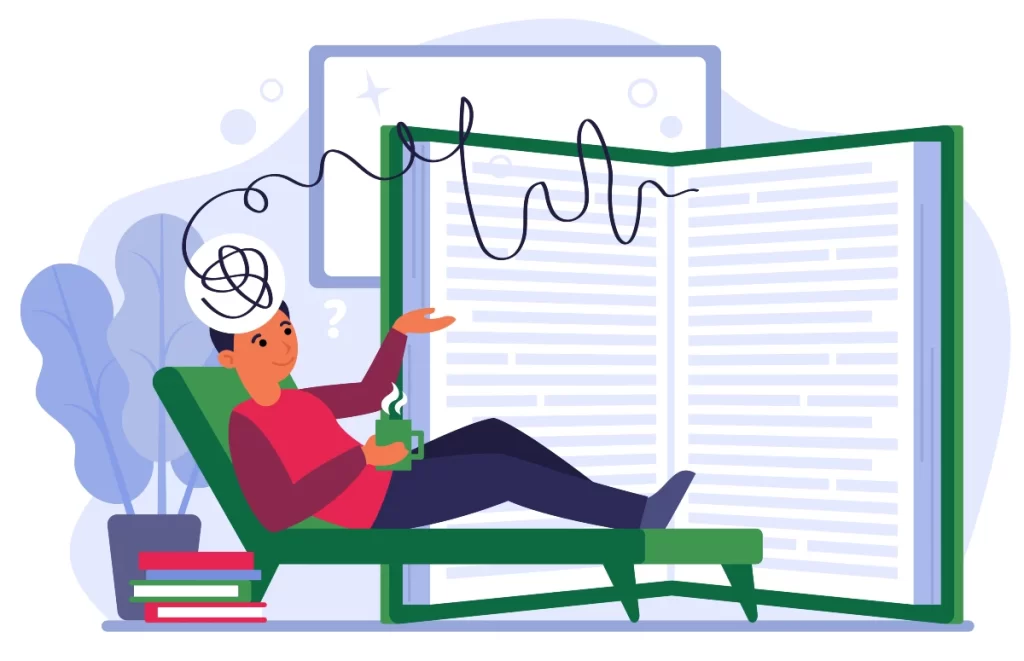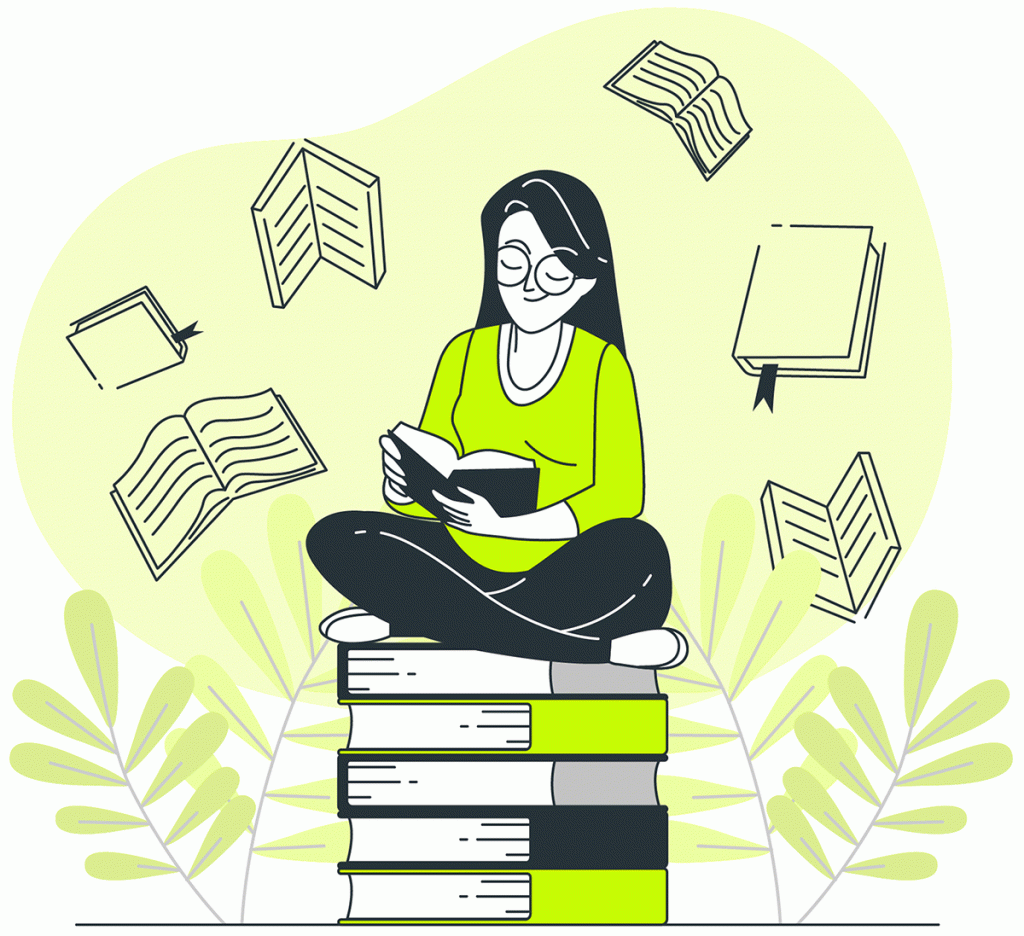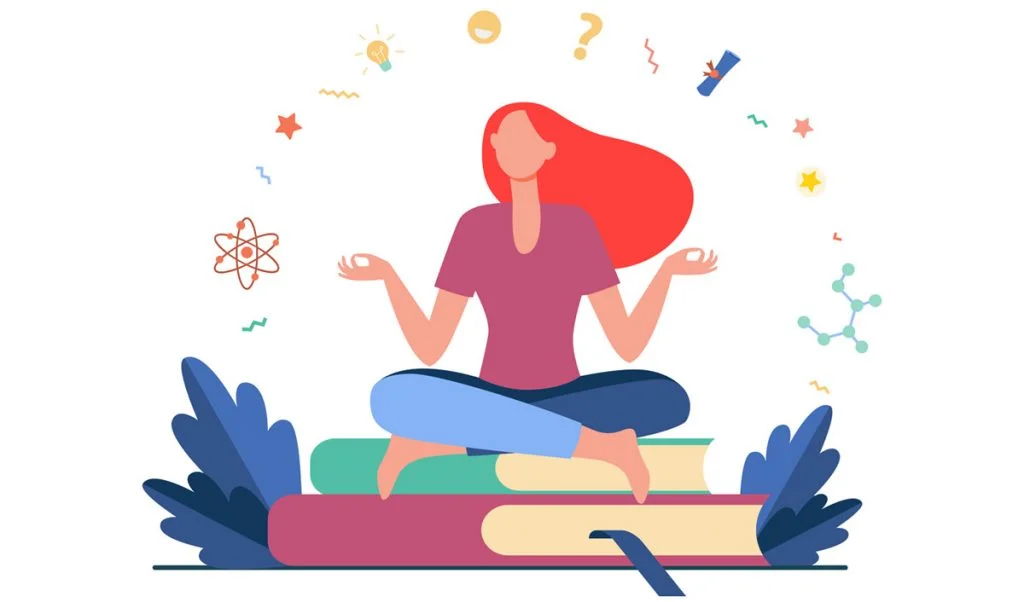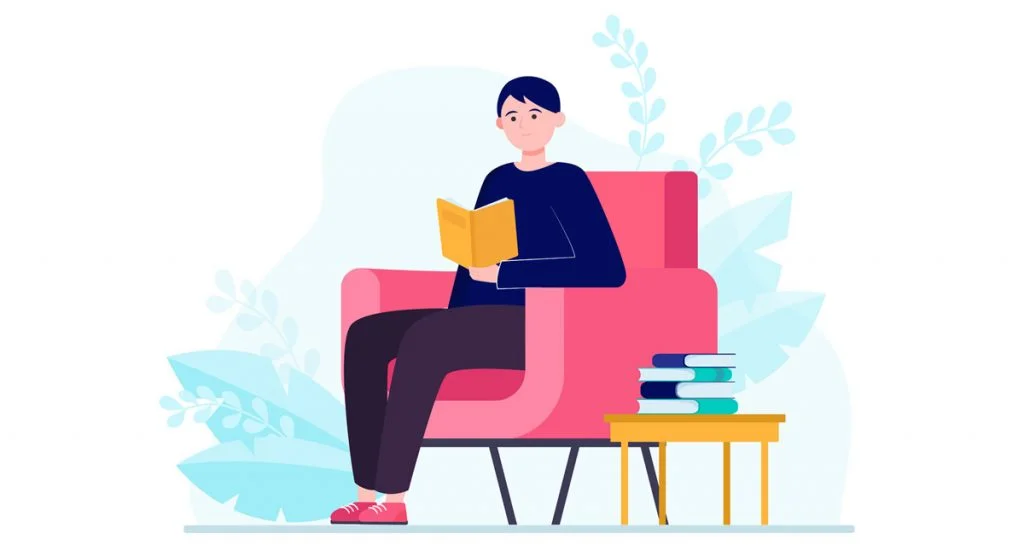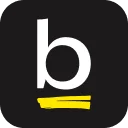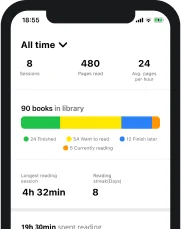As readers, we often wonder how we can improve our performance. How can we get more reading done in our very limited time? How can we extract more value from our reading sessions? Using different reading strategies does help a lot, but how do you choose the right one for you out of the multitude of techniques and strategies out there?
Here at Basmo, we are dedicated to helping you become the best you can be in terms of reading performance, and that is why we want to provide you with all the necessary information for making an informed decision when it comes to choosing the right strategy for your personal goals.
Using questioning as a reading strategy may be the next big thing for your reading experience, but it is up to you to decide. Everything you need to know about the questioning and reading strategy is right here.
- What is a questioning reading strategy?
- What is a self questioning reading strategy?
- How does the questioning reading strategy work? Our step-by-step guide
- How do questioning strategies help students become better readers?
- What are some examples of the questioning reading strategy?
- How can questioning strategies help reading comprehension?
- How can Basmo help you with the questioning strategy?
- Final thoughts
What is a questioning reading strategy?
By its definition, the questioning strategy in reading represents a technique through which the reader generates and asks questions about the content of a book or reading material to better understand and engage with the text. This habit of asking questions while reading is just as appropriate and helpful regardless of whether you are reading fiction, non-fiction, or academic materials.
When using the questioning reading strategy, you actively interact with the text by formulating questions about the particular subject the book is about, the author’s goal or intentions, and the key concepts. These inquiries can be used to define ambiguous terms, draw links between various passages, and pinpoint the main themes and concepts of the text.
Your information retention and critical thinking abilities can both be enhanced by using the questioning reading method. Additionally, it may increase your ability to focus and stay engaged in the content, which will make reading more rewarding and enjoyable.
What is a self questioning reading strategy?
Self-questioning is an introspective reading technique in which you, the reader, ask questions about the reading material you are going through. It might sound quite similar to the questioning strategy in general, but what makes self-questioning actually stand out is the fact that the entire process is an internalized one.
You are the one generating the questions, trying to predict the answers, looking for the actual answers while reading, and paraphrasing the answers to yourself. The process can take your comprehension and information retention levels to a new level because your mind will be constantly engaged in the reading session.
How does the questioning reading strategy work? Our step-by-step guide
The questioning strategy in reading is a pretty straightforward process at first glance. Asking questions and finding the answers to them while reading may seem like all there is to it. Well, getting the best results from this strategy requires a little more than that. Rest assured, by the end of this article, you will know everything that you should.
Using the questioning technique works best when you apply a set of rules and approach it with a clear plan. Here is the ultimate step-by-step guide to making every questioning reading session a successful one.
1. Know your reason
The very first step is to simply establish your goals. Try to figure out why you are using this strategy in the first place and what you are hoping to achieve by using it. Set clear goals and use them as motivation for the upcoming reading session. Are you using the questioning strategy for reading comprehension, or do you want to simply exercise your brain in a more meaningful way? As soon as you know what your purpose is, your perspective and motivation will change.
2. Choose the right book
You already know that some books are more challenging to read than others. Some are more appropriate for relaxed reading sessions, while others require a more active approach to reading. In this scenario, using the questioning strategy is usually a lot more efficient and valuable as an activity if your reading material is more complex.
Books that are easy to read, like certain fiction subgenres (romantic, erotica, young adult), usually don’t require any particular reading strategies to fulfill their purpose. Non-fiction books or more complex novels are worth the effort of using reading strategies like questioning because they will simply reveal more information in the end, will enrich your vocabulary to a greater extent, and will have a more profound effect on your thinking skills.
3. Skim the text first
Once you have your goals set and the book chosen, it’s time to have a superficial look over the text. This skimming technique will give you a quick overview of the content you are about to explore and will allow you to gain a vague understanding of the main themes, ideas, and concepts you are about to learn about.
This will make the active reading stage a lot smoother, because you will already have a vague idea about where all the information is located in the book or reading material. That way, you will know which part of the book will answer certain questions.
4. Formulate both open and closed questions
The stage where the questions are formulated is, obviously, a very important one. You should make sure that you choose your questions carefully, in a way that is going to be helpful for your goals.
The key here is to use a combination of open-ended and closed questions. An open-ended question is one where the answer needs to be more elaborate than a simple yes or no. Closed questions, as you might expect, can be answered with simple yes or no.
Use the information you managed to gather through the skimming stage to formulate questions that are relevant both to the context and to your own goals.
5. Write things down
Using questioning while reading is a complex strategy that involves several other techniques. One of the most important things you can do to make the whole process more rewarding is to take notes. Write down the questions you are hoping to be able to answer by the time you are done with the reading session.
It is also a good idea to write down the answers to these questions as you find them in the reading material. That way you can use your notes as a checklist, a set of milestones you need to reach by the end of the reading session to be able to declare it a success.
6. Try to anticipate the answers
A good way to take full advantage of the questioning reading strategy is to try and anticipate the answers. This way, you actively engage with the text and you use your priorly acquired knowledge, previous experiences, and your imagination to try and figure out where the action in the book is going before you actually read everything.
This impacts you in several positive ways. For one thing, you exercise your brain and develop better analytical skills. By using your imagination and flexing your thinking muscles constantly, you will end up with a better functioning brain, and you will develop better abilities when it comes to thinking on your feet and coming up with solutions to various problems. Another great thing about this is that it will help with your outside-the-box thinking as well.
7. Read actively
It goes without saying that in order to be able to answer all the questions you set for a reading session, you will need to read actively. You will need to engage with the content in a meaningful way, and you will need to focus your attention on all the relevant details. Read slowly, pay attention to the things that matter, and make an active effort to comprehend everything down to the last detail.
Through active reading, you will improve your comprehension levels and even the amount of information you will actually retain. Active reading is an intense exercise and a particularly rewarding one.
8. Reflect on the answers you found
To add an extra layer of meaning and to enjoy the rewards of your questioning reading session, you need to take a minute and reflect on what you read and the answers you found.
This process of internalizing the information and making it your own through active thinking will enhance your experience tremendously. Use this time to determine whether your questions were answered properly, if you now possess all the information you were hoping to possess at this point.
If you are unhappy with the way your questions were answered, now is the time to try and come up with a different strategy- what other books can you read on this topic? Were your questions formulated correctly? Did you actually do your very best to answer them? Use this analysis to adapt your strategy in upcoming sessions.
How do questioning strategies help students become better readers?
Students are generally the ones who take advantage of reading strategies the most. That’s because they are constantly facing the requirement to read high volumes of material, comprehend and retain a lot of information and grasp new concepts all the time. They are the ones who generally do the most questioning while reading and here are a couple of reasons why this strategy makes a huge difference for students as readers.
1. Improved comprehension
By asking questions about a text, students can better comprehend and interact with the information. They are more likely to remember the material and comprehend the main concepts if they actively and constantly evaluate the text’s meaning and content.
2. Enhanced critical thinking skills
Questioning techniques urge students to think critically about a book, which can help in the development of this ability. Critical and analytical thinking are skills that every student will benefit from mastering, especially when we consider their importance in learning and problem-solving.
3. Increased engagement
Students are more likely to get actively involved in reading the material when they ask themselves questions about the content. For them, reading will become more rewarding and enjoyable as a result. Staying engaged in the reading material for longer and at a higher degree will in turn increase their levels of comprehension and retention.
4. Personal connections
Students are also quite likely to develop a deeper connection to the topic by using the questioning strategy. This way, the studying or reading activities will become more relevant, students will access other information they previously acquired about the given topic, and will have a much easier time going over the new concepts that are presented.
What are some examples of the questioning reading strategy?
Using questioning as a reading strategy can be a complex endeavor. There are several types of questions that can be used to help guide you in the process. These include:
- Right There Questions: These are questions that have a direct answer in the reading material itself. They could inquire about particular facts or information that the book makes reference to.
- Think and Search Questions: These are more in-depth questions that require the reader to use critical thinking while reading and make connections between various passages or pieces of information that were previously acquired. They might inquire about the text’s main concepts or the author’s big-picture goals or intentions.
- Author and Me Questions: The reader can relate to the content more deeply by answering these “author and me” questions. These may refer to the reader’s personal views or experiences in regard to the material.
While these questioning reading strategy examples cover a pretty wide range of possible questions that can help you engage with the text to a deeper level, improving your comprehension and information retention levels, the truth is that each book is different and has something else to offer. Your questioning is going to look quite different when reading a fiction book compared to a non-fiction book, for example. The beauty of this reading strategy is that you are quite unlikely to limit yourself to a set of questions you get to use when reading every book. The questions are going to change constantly, which is going to give you an opportunity to expand your views.
How can questioning strategies help reading comprehension?
Because it encourages active engagement with the text and encourages you to think more critically about what you are reading, asking questions while you read can be a useful technique for enhancing comprehension. There are certain ways in which using questioning strategies for reading comprehension can be highly beneficial,
Here are some of the things you can expect your questioning strategy to be particularly useful for in terms of reading comprehension.
- Generating questions while reading. While most people tend to focus more on the answer, we are here to tell you that actually coming up with the questions and formulating them is equally important. By trying to generate questions as you read, this process is going to help you stay focused on the most important ideas and information in the text. And more often than not, you will also get your clarifications as you go.
- Answering questions. Obviously, finding your answers is going to be a massively important part of comprehending particular reading material. By actively looking for answers to your questions while reading, you are going to be able to gain a much better and more structured understanding of the text. Also, having a reading session organized in this Q&A fashion is going to allow you to quickly identify gaps in your knowledge.
- Clarifying understanding. This is the process of trying to ensure that your level of comprehension is up to par while reading. As soon as you learn or understand a new concept, to make sure that you understand it correctly, you should try rephrasing the answer you received while reading. Explaining new concepts to yourself in different words can have a huge effect.
- Making connections. As you read and generate and answer questions, you will make connections. You will be subconsciously forced to employ your prior knowledge, put things together, and connect with previous experiences. This will have a positive effect on the way you comprehend and remember what you read. On top of this, the connections you will make while reading and questioning are also going to help you see things from a different perspective, put them in context, and gain a big picture of the topic.
Overall, questioning strategies can be a powerful tool for improving reading comprehension because they encourage you to actively engage with the text and think more critically about what you are reading.
How can Basmo help you with the questioning strategy?
If it wasn’t already pretty obvious, the questioning reading strategy implies that you are engaged in an active reading session. Active reading is a complex activity that involves a high degree of dedication, attention to detail, and a clear purpose. As you can probably imagine, in order to achieve the best results from an active reading session, you will need all the help you can get.
Basmo is a reading tracking app that comes feature-packed to the brim to help readers of all levels increase their productivity, efficiency, and overall performance. Here is how Basmo can help you use the questioning reading strategy more easily and efficiently.
Take notes. Whether you prefer to write down your questions as you come up with them or the answers you find while reading, it’s easy to get it done with Basmo. Our app automatically launches the note-taking feature while a reading session is ongoing, so all you need to do is simply start typing whenever you need to jot something down.
Annotate. Highlighting or annotating your books is a necessary step during active reading sessions. Unfortunately, doing this the old-fashioned way will leave your books in a pretty nasty state. With Basmo, you can avoid that by simply using the integrated book scanner and doing your annotations and highlighting digitally, with minimum effort and no destructive effect on your reading material.
Be an organized reader. You might think that being organized has nothing to do with your ability to use the questioning strategy while reading. And you would be right to a certain extent. But proficiency in anything only comes with a certain degree of dedication. Being an organized reader has tons of benefits, and even more importantly, it is quite easy with Basmo. Use our app to create a reading schedule. You can select the exact days of the week you want to do some reading in and different times for each session. That way you can work around your busy schedule to find some time for reading.
Create reading lists. It’s no surprise that some books are worth applying different reading strategies to, while others simply aren’t. With Basmo, you can easily create separate reading lists for the books you want to read actively and use the questioning reading strategy.
Final thoughts
Using questioning as a reading strategy is a great way to boost your comprehension and information retention levels. Use Basmo and learn the easiest and most effective ways to use questioning while reading.
Image by pch.vector on Freepik
